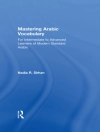‘This is a must-read for every student, lecturer and professor. It establishes Internet Studies as essential to an understanding of how learners and educators can capture the value of our networked world.’
Professor William H. Dutton, Director of the Oxford Internet Institute, University of Oxford
In E-learning Theory and Practice the authors set out different perspectives on e-learning. The book deals with the social implications of e-learning, its transformative effects, and the social and technical interplay that supports and directs e-learning.
The authors present new perspectives on the subject by:
– exploring the way teaching and learning are changing with the presence of the Internet and participatory media
– providing a theoretical grounding in new learning practices from education, communication and information science
– addressing e-learning in terms of existing learning theories, emerging online learning theories, new literacies, social networks, social worlds, community and virtual communities, and online resources
– emphasising the impact of everyday electronic practices on learning, literacy and the classroom, locally and globally.
This book is for everyone involved in e-learning. Teachers and educators will gain an understanding of new learning practices, and learners will gain a sense of their new role as active participants in classroom and lifelong learning. Graduate students and researchers will gain insight into the direction of research in this new and exciting area of education and the Internet.
Inhoudsopgave
Acknowledgements
Introduction: New Learning Practices
What′s New in Learning?
What is Driving New Conditions for Learning?
Chapter Outline
Looking Forward
Further Reading
The New Media
Introduction
Features of Computer-Mediated Communication
Conclusion
Further Reading
Theories of Learning
Introduction
Transformation, Framing and Emergence
Challenges for Assessment
Toward E-Learning Theory
Texts
Conclusion
Further Reading
Theorizing Online Learning
Introduction
Existing Theoretical Positions
Further Theories
Interim Summary
Does E-Learning Require a New Theory of Learning?
Three Questions Answered
Further Thoughts
Conclusion
Further Reading
New Literacies, New Discourses in E-learning
From New Literacies to New Discourses
Exploring Modes
From ′Literacy′ to ′Discourse′
The Implications of a ′Discourse′ View of E-Learning
A Reciprocal, Co-Evolutionary Model of Literacy Development and Learning
Developing a New ′Language′ for E-Learning
Conclusion
Further Reading
Participatory Cultures
Introduction
Technologies of Participation
Brief History of IT Development
Participatory Media
Educational Spaces: 1.0 and 2.0
Changes in Authority and Contribution
Conclusion
Further Reading
Learning Communities
Introduction
Defining and Locating Community
Why Collaboration and Community?
The Concept of Community
Creating an E-learning Community
Promoting a Community
Conclusion
Further Reading
Sociotechnical Perspectives
Introduction
Reviewing Social Processes and Technology
Managing the Social and Technical Mix in E-learning
Balancing the Social and Technical
Conclusion
Further Reading
E-learning Ecologies
Introduction
The Ecology of the E-learning Environment
Personal Ecologies
Conclusion
Further Reading
Ubiquitous Learning, Ubiquitous Learners
Introduction
Becoming an Ubiquitous E-learner
Who Is A Ubiquitous E-learner?
What Does a Ubiquitous Learner Learn?
The Ubiquitous Learner and the Economics of Attention
Conclusion
Further Reading
E-inclusion and Exclusion
Introduction
Digital Divide
Digital Spectrum
Conclusion
Further Reading
Cross-Cultural Issues
Introduction
Issues Arising From Cultural Diversity
E-learning Across the Globe
Potential Problems with Cross-Cultural Approaches to E-Learning
Further Reading
Researching E-Learning
Introduction
Getting Started in E-Learning Research
E-learning Research Dimensions
Research about and for E-learning
New Forms of Research Formats in the Digital Age
Becoming an E-Researcher
Future Research
From Research About E-Learning to Research For E-Learning
Conclusions
Further Reading
References
Over de auteur
I focus on research in the fields of language education, argumentation, writing development, multimodality, rhetoric and e-learning. With colleagues I designed the MA in English Education.












